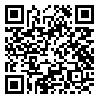BibTeX | RIS | EndNote | Medlars | ProCite | Reference Manager | RefWorks
Send citation to:
URL: http://jdc.tums.ac.ir/article-1-2-en.html

 , Hamidreza Mahmoodi
, Hamidreza Mahmoodi 
 , Seyyed Hamed Hosseini
, Seyyed Hamed Hosseini 
 , Kamran Balighi
, Kamran Balighi 
 , Maryam Daneshpazhooh *
, Maryam Daneshpazhooh * 
 1
1
Background and Aim: Pruritus is a major symptom of dermatologic diseases and a common symptom of systemic diseases. Severity of itch cannot be measured objectively. It’s usually determined to using a Visual Analogue Scale (VAS). But none of them can determine the effect of pruritus on patients' quality of life. So in the present study we sought to translate and develop a validated reliable Farsi version of pruritus specific quality of life instrument, ItchyQoL.
Methods: ItchyQoL questionnaire was translated to Farsi by two bilingual people, and then it was back-translated to English by two other bilinguals. These two questionnaires were matched and revised and the final Farsi questionnaire was established. Forty four patients with dermatologic pruritus filled the questionnaire at the baseline and 72 hours later, and the structural reliability and validity of it was analyzed.
Results: The questionnaire had internal consistency and reproducibility. The questionnaire reliability was also analyzed by test-retest which was significant. Construct validity was analyzed by examining the relationship between intensity and frequency of itching with the total score in the three main axis symptoms, which was significant in all except the dysfunction axis.
Conclusion: The Farsi version of ItchyQoL questionnaire has favorable reliability and validity.
Received: 2012/05/25 | Accepted: 2012/07/31 | Published: 2013/07/16
| Rights and permissions | |
 |
This work is licensed under a Creative Commons Attribution-NonCommercial 4.0 International License. |



